
The medical director manager of neuroscience at Genentech offered her perspective on the mountain of data presented at MS Virtual 2020 on the recently approved NMOSD treatment.

The medical director manager of neuroscience at Genentech offered her perspective on the mountain of data presented at MS Virtual 2020 on the recently approved NMOSD treatment.

Researchers concluded that uptitration of ponesimod was not associated with clinically significant bradyarrhythmia events; none were serious or lead to discontinuation.
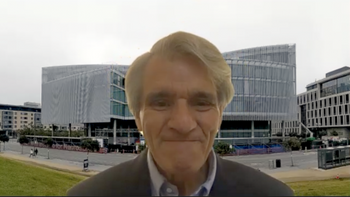
The director of the UCSF Weill Institute for Neuroscience spoke to the advantages of having agents that can be used across the spectrum of MS, and the role disease progression plays early on.

In the third year of treatment, both dose cohorts did not experience any contrast-enhancing lesions, and only a small population in the Barcelona center showed new T2 lesions.

The medical director manager of neuroscience at Genentech discussed the swath of data presented on the humanized anti-CD20 monoclonal antibody at MS Virtual.

Early intensive treatment was more effective in controlling disability progression over time compared with an escalation therapy approach.

The director of the UCSF Weill Institute for Neuroscience spoke to the advantages of having agents that can be used across the spectrum of MS, and the role disease progression plays early on.

Patients with lower levels of disability tended to report fatigue as the most impactful symptom in daily life.
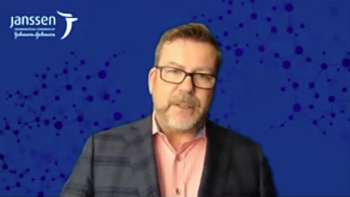
The global head of Development and External Affairs-Neuroscience at Janssen Pharmaceutical detailed what makes ponesimod different from other currently FDA-approved treatments.

Treatment with ocrelizumab can improve freedom from individual events in patients with relapsing-remitting multiple sclerosis regardless of suboptimal DMT response in the past.

The director of the UCSF Weill Institute for Neuroscience offered his perspective on data presented at MS Virtual suggesting ofatumumab’s benefit in patients with MS who were treatment naïve.

Atara Biotherapeutics’ allogeneic EBV-targeted T-cell therapy, ATA188, is well-tolerated in phase 1, with a dose identified for the randomized placebo-controlled portion of the study.

Future research may help better characterize whether fatigue interventions aimed at one patient population may be effective in the other.

A pair of datasets from the phase 3b CASTING study of ocrelizumab (Ocrevus; Genentech) suggest that patients treated with the agent experienced high rates of no evidence of disease activity status regardless of prior DMT exposure.

The global head of Development and External Affairs-Neuroscience at Janssen Pharmaceutical discussed the results of a phase 2 core and extension study of ponesimod in patients with relapsing-remitting multiple sclerosis.

Along with being generally well tolerated, ozanimod was able to help most patients become relapse free without disability progression.

The neurologist at Lenox Hill Hospital detailed the findings of his observational study that looked at patterns of COVID-19 infections in patients with multiple sclerosis.

Two posters presented at MS 2020 confirm satralizumab’s ability to reduce protocol-defined relapse including in patients with treatment-naïve NMOSD.

The executive vice president and head of global research and development at Atara Biotherapeutics spoke to the findings of a phase 1 study of the cell therapy ATA188.

Data show that higher CSF tau levels at diagnosis correlated with worse disability independent of age, though no such associations were identified with amyloid-beta.
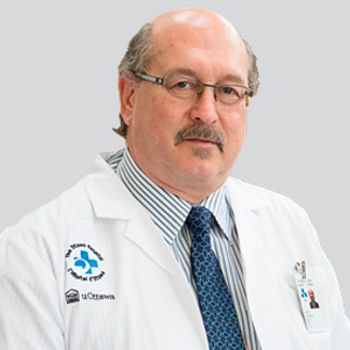
No new safety signals were observed in the combined analysis of ponesimod from the phase 2b core study and extension study.

Treatment-naïve patients showed consistent results with the overall study population that was observed in the ASCLEPIOS I and II trials.

Patients with relapsing multiple sclerosis and high levels of fatigue were less likely to be employed full-time than those with MS with low fatigue.
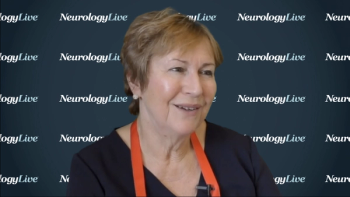
The neurologist at the National MS Center and University Hospital, in Brussels, discussed the clinician mindset when treating women with MS who plan to get pregnant, and how patients using assistive reproductive treatments should be approached.
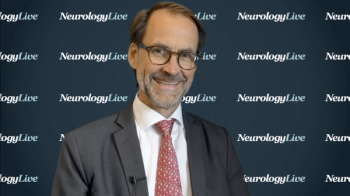
The professor and senior physician in the department of clinical neuroscience at the Karolinska Institutet spoke to the use of stem cell transplantation as a potential method of treating multiple sclerosis.

The neurologist at the National MS Center and University Hospital, in Brussels, spoke to the decision-making process when treating women with MS who seek to get pregnant, or who are planning a family.

The professor and senior physician in the department of clinical neuroscience at the Karolinska Institutet discussed the evolving understanding of the blood-brain barrier in MS, and what might still be left to uncover.

Mallinckrodt’s repository corticotropin injection was shown to have a lower cost per patient response compared to other late-line treatments for multiple sclerosis relapses, costing an estimated $148,528 less per response.

The GeNeuro agent showed marked reductions in brain atrophy in the thalamus and cerebral cortex through a long-term extension period treating patients with multiple sclerosis.

The professor and senior physician in the department of clinical neuroscience at the Karolinska Institutet spoke to the aspects of MS—such as brain volume loss—which are not currently being addressed by the available disease-modifying therapies.